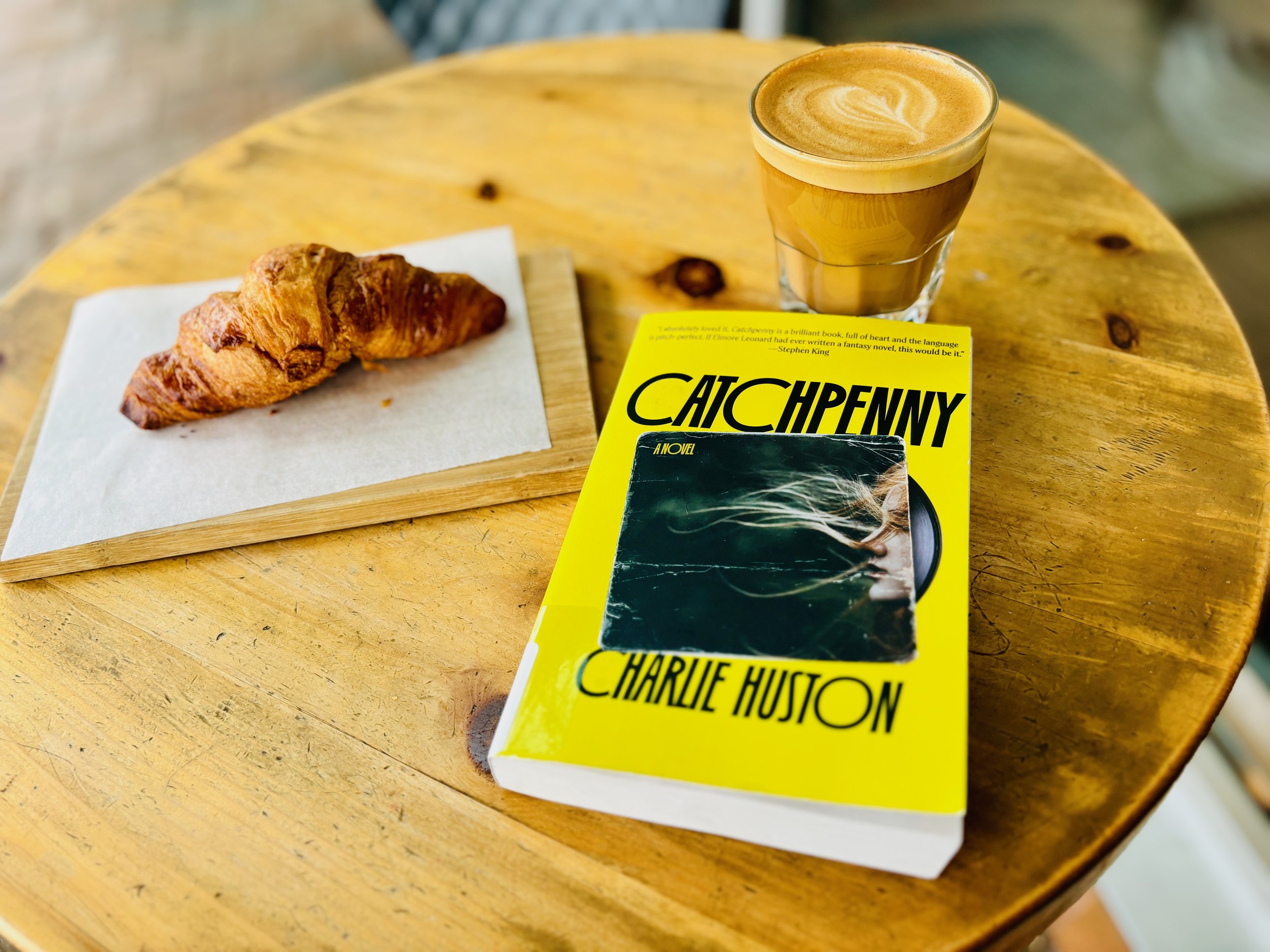Review: 4 stars
A week ago, I took my two children to the public library, and somehow managed to distract them enough to buy a few minutes to roam the adult floor. ‘Catchpenny’ was on a shelf of new books, and the premise of world redemption through witchcraft, suicide cults and a depressive anti-hero, was enough to catch my eye.
I settled in at one of my favourite coffee shops - Vereda Central Roasters - a few days later and launched headfirst into Charlie Huston’s cleverly constructed world. In his version of our today’s world, reflections can be “limned” from mirrors and transformed into real-life dopplegangers (albeit comprised of glass instead of flesh and blood.) Magic - or ‘mojo’ as it is referred to in the novel - is real. Raw emotions and revered rituals can birth powerful forces, which are channeled into inanimate objects - ‘curiosities’. This power can be tapped for many self-aggrandizing purposes, in addition to enabling travel between mirrors in disparate locations.
We meet Sid Catchpenny, our protagonist, as he is sought out by an estranged friend, Francois, to help a mother find her missing daughter, Circe. What ensues is a highly captivating and intricately woven thriller where we are constantly left wondering where the line between good and evil lies. Each of the countless characters - Monroe, Sue, Francois, Abigail, Circe, Carpenter, Sid - are desperately flawed, and also deeply misunderstood, adding to the complexity of assigning the roles of heroes and villains. Huston takes his time to unravel the twisted yarn connecting everyone, and in doing so, exposes to the reader that Sid, our guide through this narrative funhouse, fundamentally knows nothing…meaning we also know nothing until the climax of the novel.
I found the story well paced and easy to lose myself in. It was reminiscent of ‘The Matrix’ for me, with vocabulary and rules used to effectively cast the structure for an alternative reality. For example, the omnipresence of “mojo” throughout the story, establishing “courses” to direct the mojo to “vehemancers”, ‘manikins’ as the “limned” reflections, and the time-bound “Vestibule” in between mirrors. Sid is also a refreshing protagonist - self-deprecating, honest and a bit of a maverick. Popular cultural touchstones are catalysts of the plot and work very effectively to draw contemporary parallels to our current lived experiences - for example, Monroe’s parties are reminiscent of Woodstock or Coachella, Gyre is an interpretation of popular MMPORGs and youth’s timeless pursuit of meaning at all costs.
It was an excellent escapist read that also provoked discussion on how the power of emotion can be captured and used as a force. It asks whether apocalypse is evil, or if it can be seen as a renewal - the creation of something new from the dredges of a destabilizing and disintegrating world. And if renewal is possible, how can a new world order be constructed to be more equitable and selfless. ‘Catchpenny’ is definitely worth an exploration for a curious, fantasy-loving reader.


